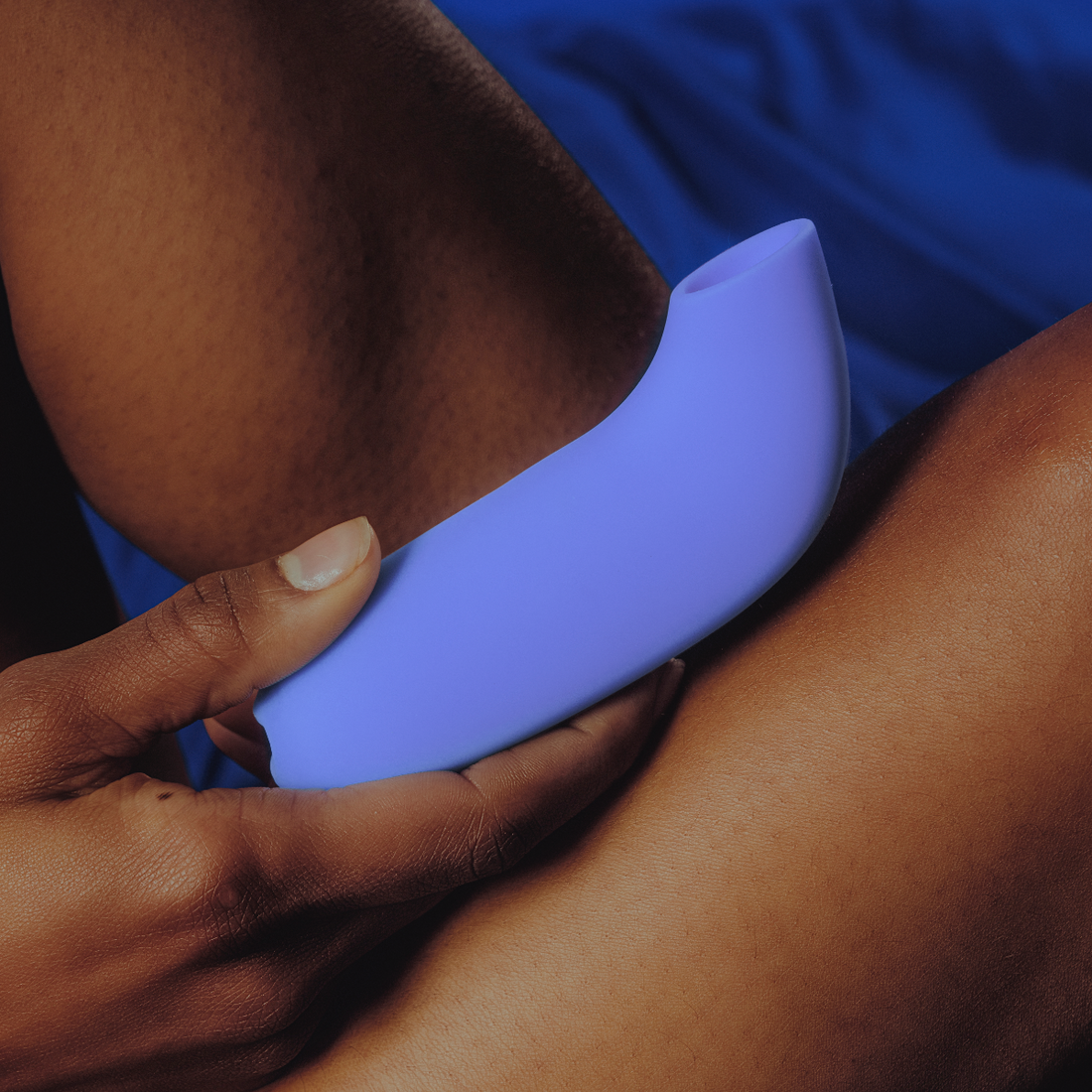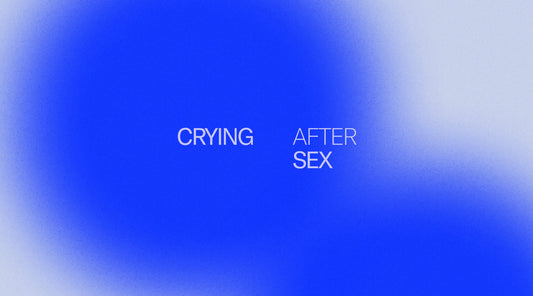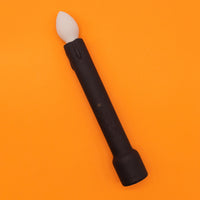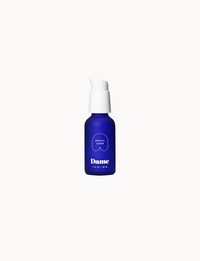We spoke with a psychiatrist and a psychiatric nurse practitioner about how anti-anxiety and antidepressants can impact your sex life.
After a transformative year of going to psychotherapy and dedicating myself to holistic self-care activities such as yoga and acupuncture, I finally came to terms with the fact that I was living with a base level of anxiety that’s always been present, and probably will never go away completely. While my symptoms have improved drastically, I recently decided to try the next thing: it was time to give anti-anxiety medication a real shot.
I had long heard rumors about SSRIs — selective serotonin reuptake inhibitors, commonly used to treat anxiety and depression — impacting one’s sex drive and ability to orgasm. While I was concerned about what these side effects could mean for my sex life, I ultimately decided that the benefits outweigh the risk. Why not at least try it and see what happens?
Since starting Lexapro about six weeks ago, I’ve noticed myself feeling less inclined to masturbate on a regular basis and while I am still able to orgasm, with or without a partner, it can take significantly more effort and time to get off. Though this issue hasn’t been impacting my daily life too at the moment, I still want to educate myself about the interaction between SSRIs and sex.
Here we speak with Carlene MacMillan, a Psychiatrist and the Clinical Director at Brooklyn Minds, and Kim Meehan, a Psychiatric Nurse Practitioner at SohoMD, about how these medications can impact your sex life.
How do SSRIs decrease our ability to orgasm?
Carlene MacMillan: “SSRIs increase serotonin levels, and while this is good for mood, it is not so good for sex drive and achieving orgasm. In fact, some men are prescribed SSRIs to help with premature ejaculation.”
Kim Meehan: “While the exact mechanism of sexual dysfunction is not known, it is well known that serotonin has many roles within the body. The increase of serotonin by SSRIs is what helps reduce anxiety and depression, but higher serotonin also leads to side effects in other parts of the body, including sexual side effects. The increase in serotonin also changes the transmission of other neurotransmitters, such as decreasing dopamine and norepinephrine, which play an important role in sexual function. SSRI's impact sexual function in and estimated 25-50% of those taking
Is this the case for both women and men?
Carlene MacMillan: “SSRIs can impact the sex drive and achievement of orgasm for men and women. The main difference for men is that SSRIs do not seem to have a major impact on achieving an erection — it is more that they delay ejaculation. If someone is anxious about the impact the medications might have on performance, however, that anxiety can impact ability to achieve and maintain an erection. There is some thinking that women taking SSRIs tend to experience decreased libido more commonly than men, probably due to having lower testosterone levels.”
Kim Meehan: “Sexual dysfunction occurs in both males and females equally, although impacts them in different ways. Sexual dysfunction caused by SSRIs impacts the ability to orgasm by lowering libido, impairing arousal with decreased lubrication, inability to climax in women, and prolonged time to ejaculate in men.”
Does this side effect occur usually in the beginning of trying the medication or is it a long term side effect?
Carlene MacMillan: “Unfortunately, this is a side effect that can happen even at low doses and does not seem to go away throughout the course of treatment for the majority who experience it. We are not very good at predicting which patients will have this issue, though for some, higher doses seem more likely to cause it. We do think that individuals who metabolize (e.g. break down) the drugs more slowly may be more likely to experience side effects. There are genetic tests that can be done using saliva to test this, but we do not usually do that type of testing just for this reason. Really, it is more a matter of trial and error.”
Kim Meehan: “The side effect of sexual dysfunction is dose dependent and also dependent on the individual's biological disposition, so it is often difficult to predict who will experience this side effect and to what extent. Because it is dose dependent, it is not always seen immediately until higher doses of the medication are trialed. I often don't seen sexual side effects resolve spontaneously in clients, and it is predicted to subside in only 10% of those who experience it. However, sexual function is expected to return to normal once the medication is stopped.”
What can someone do to combat this side effect?
Carlene MacMillan: “Sometimes as psychiatrists we will use combinations of antidepressants to minimize the impact of an SSRI causing this symptom. The most common scenario is someone taking a low dose of an SSRI and another antidepressant called bupropion together. Bupropion does not cause sexual side effects for vast majority of individuals and allows them to take a lower dose of an SSRI than they might on the SSRI alone. Bupropion also increases dopamine which is associated with experiencing pleasure. There is some thinking that other antidepressants such as SNRIs may be less likely to cause sexual side effects than SSRIs but in clinical practice, I see patients on SSRIs and SNRIs complaining.
“In addition, people taking SSRIs should pay extra attention to their alcohol intake and other illicit drug use that can also have negative effects on sexual performance. Making healthy choices such as exercising regularly and getting enough sleep are likely to have benefits on your sex life and your mood. Do not stop the SSRI, reduce the dose, or skip doses on days you’re planning to have sex unless a doctor specifically says that is OK to do. SSRI withdrawal is pretty unpleasant and not conducive to sexy time. Sometimes people do find if they take their antidepressant in the morning and have sex at night or at bedtime after they have had sex results in better experiences than if taken shortly before having sex.”
Kim Meehan: “The initial recommendation is the ‘wait and watch’ approach, as SSRI's can take 3-8 weeks to see the full effects both therapeutically, as well as resolution of side effects. Sometimes the sexual dysfunction improves or goes away entirely with the body's adjustment to the medication. An important conversation I have with all of my clients is to weight the pro/cons of the medication. For example, if the benefit from the medication on their mood outweighs the negative of low libido, and to what extent this side effect impacts the client’s mood. This is also important to continue to evaluate with the clients as treatment progresses, as the negative of the sexual dysfunction can become more problematic with time if the client notices it impacting their relationship or their ability to find joy.
“If the ‘wait and watch’ approach does not work, I recommend clients consider other antidepressants, whether that is adding something in addition to the SSRI, or as a replacement. Medications such as Wellbutrin and Buspar are both used to treat depression and anxiety, and can sometimes be used in addition to SSRI/SNRIs to potentially reduce sexual side effects.”
How should one approach this issue with a partner?
Carlene MacMillan: “Being on antidepressants is extremely common these days, and there is a growing awareness of the impact on sexual function. I recommend discussing the issue long in advance of the bedroom. That way, there is a less of a chance for misunderstandings or disappointments when the time comes to have sex. People, especially early in a relationship, may assume that they are not sexy enough or not ‘good enough in bed’ if their partner is not as interested in sex as they expect, or if orgasms are nowhere to be found that day. Reassuring one’s partner that it is the medication is generally much better than letting them think they are falling short in some way.”
Kim Meehan: “One of the most important ways to maximize sexual function while on an antidepressant is to have open and direct communication with your partner. First and foremost, it is important to let your partner know that the reason for sexual dysfunction, low libido, etc. is not them, or a factor of the relationship, but related to the medication. This can help open the conversation on other ways your partner can bring pleasure. This includes talking about your needs, sexual desires, what turns you on, fantasies. I also encourage the emphasis on fostering intimacy outside of sex, and establishing a set time to specifically connect emotionally with your partner, whether just having intimate discussion, sensual touching, or participating in activities you enjoy together.
“Ultimately, if you feel that the benefit of the medication still outweighs the sexual dysfunction, and the sexual dysfunction is impacting your relationship and that you and your partner have, or is impacting your self esteem and self value, I recommend to see a sex and relationship therapist.”
Anything else we should keep in mind?
Carlene MacMillan: “Keep in mind that severe depression usually does not go hand in hand with a huge sex drive and pleasure seeking, but rather isolation and lack of interest. Therefore, when we effectively treat it, some people will actually experience an increase in libido and ability to experience orgasms since this side of them may have been quite dormant in the midst of a depressive episode.”
Kim Meehan: “Try scheduling sex before the time that you are due for your medication, and take your medication after the sexual experience. This approach will depend on the half life of the medication. (ie., planning for sex at 8:45pm when you are due for your medication at 9pm). While this may be effective, it can lead to a loss of intimacy as sex has to be 'planned' and loses spontaneity.
“A common misconception linked to the perception of low libido is the idea of waiting to be turned on. However, because of the impact on libido, arousal from previous sexual situations may not work anymore, and you may need to be more creative and focus on elevating sexual experiences that you previously did not have to (sensual mood, aphrodisiacs, role play, BDSM, sex toys, established foreplay).”
This interview has been edited and condensed for clarity.




















































